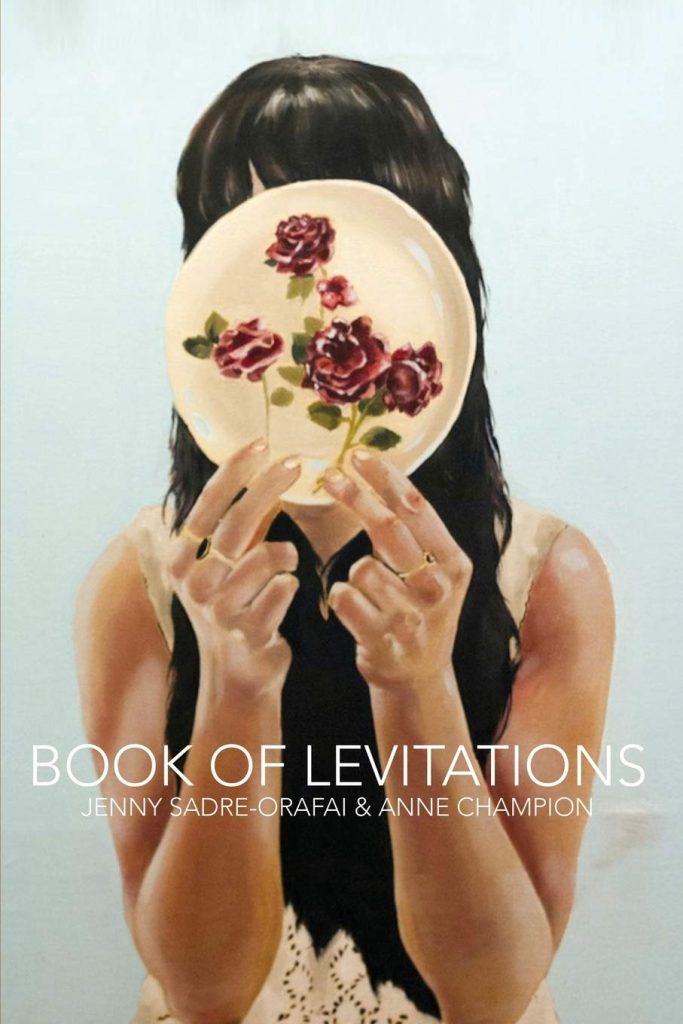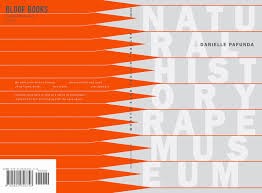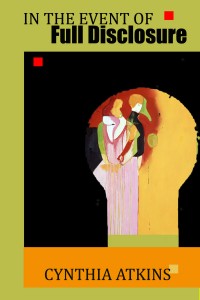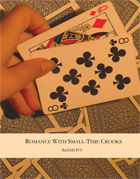
REVIEW BY GABINO IGLESIAS
—
Jenny Sadre-Orafai and Anne Champion’s Book of Levitations is a rare book that delivers on the promises made in the title but also delivers much more. This is a book about spells, ghosts, curses, and even instructions on how to make a voodoo doll, how to resurrect a dissected animal, or how to become a she wolf (“Remember,/you were born howling/with blood on your jowls”).
There is a lot of significance in this collection and the atmosphere the poems create is at once absorbing, mysterious, and enjoyable. There is an enigmatic energy at play here, along with an underlying feminist discourse that jumps off the page from time to time (Praise the girl that learns sewing/to stitch herself back up”). However, the best element in Book of Levitations is that it’s easy to read and—and this is rare for poetry that deals with dark topics even in passing—it’s a lot of fun. Here’s “Spell for New Homes”:
“Sage, holy water, black salt—
stack these in corners, smear
them in new rooms. Tie down
letters and spoons (from people
you can’t miss back)—they
levitate on full moons.
Tell all insides of cabinets
something good, bright.
Hang one plant in each room
to clean the air.
Don’t let in guests with mud
on their shadows.”
The poems in this book often read like rituals or invitations. They may or may not offer solutions, but at the core of each of them are words that deliver a strong message, once that’s loud and clear if you’re willing to listen. Sadre-Orafai and Champion have a knack for economy of language, and they ensure that they pack as much meaning as possible into each poem in Book of Levitations, none of which is longer than a page.
There are some elements of cohesions that give this collection a tremendous sense of unity. The titles are the first and most obvious one as many of them contain the word “spell.” However, as you read, things like water and death weave in and out of the collection. The same goes with you. Yes, there is a constant shattering of the fourth wall here. These poems are for readers; they’re for you. Some apply only to women, but others are clearly for everyone who reads them. Addressing the reader, adding that you to the poems, makes them much more personal. Yes, these poems are great and fun to read, but something about Sadre-Orafai and Champion talking directly to you makes them linger after turning the last page. In any case, don’t take my word for it; here’s “Spell to Stop Harassment”:
“When he tells you to smile, baby,?
do it, but make sure it cocks like a gun.
Make wind chimes of kitchen knives
and hang them in every doorway.
Find your sachet of baby teeth,
bury them in your cervix, and wait
for them to take root.
When you have a shiny row
of vagina fangs, fling your legs?
open like an umbrella in a thunderstorm.”
We all need a little magic in our lives, and Sadre-Orafai and Champion deliver plenty of it here. Read it.
—
Gabino Iglesias is a writer, editor, literary critic, and professor living in Austin, TX. He is the author of ZERO SAINTS and COYOTE SONGS. You can find him on Twitter at @Gabino_Iglesias.
![[PANK]](https://pankmagazine.com/wp-content/themes/pank/assets/images/pank-logo-large.png)




